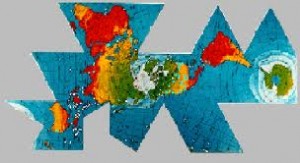
What Happens When Anonymous Gets a Bank?
Dominic Basulto on May 18, 2011
bigthink
The same people who brought you Wikileaks are back, and this time, they've created a virtual currency called Bitcoin that could destabilize the entire global financial system. Bitcoin is an open-source virtual currency generated by a computer algorithm that is completely beyond the reach of financial intermediaries, central banks and national tax collectors. Bitcoins could be used to purchase anything, at any time, from anyone in the world, in a transaction process that it is almost completely frictionless. Yes, that's right, the hacktivists now have a virtual currency that's untraceable, unhackable, and completely Anonymous.
And that's where things start to get interesting. Veteran tech guru Jason Calacanis recently called Bitcoin the most dangerous open source project he's ever seen. TIME suggested that Bitcoin might be able to bring national governments and global financial institutions to their knees. You see, Bitcoin is as much a political statement as it is a virtual currency. If you think there's a shadow banking system now, wait a few more months. The political part is that, unlike other virtual currencies like Facebook Credits (used to buy virtual sock puppets for your friends), Bitcoins are globally transferrable across borders, making them the perfect instrument to finance any cause or any activity — even if it's banned by a sovereign government.
You don't need a banking or trading account to buy and trade Bitcoins – all you need is a laptop. They're like bearer bonds combined with the uber-privacy of a Swiss bank account, mixed together with a hacker secret sauce that stores them as 1's and 0's on your computer. They're “regulated” (to use the term lightly) by distributed computers around the world. Most significantly, Bitcoins can not be frozen or blocked or taxed or seized.
See Also:







